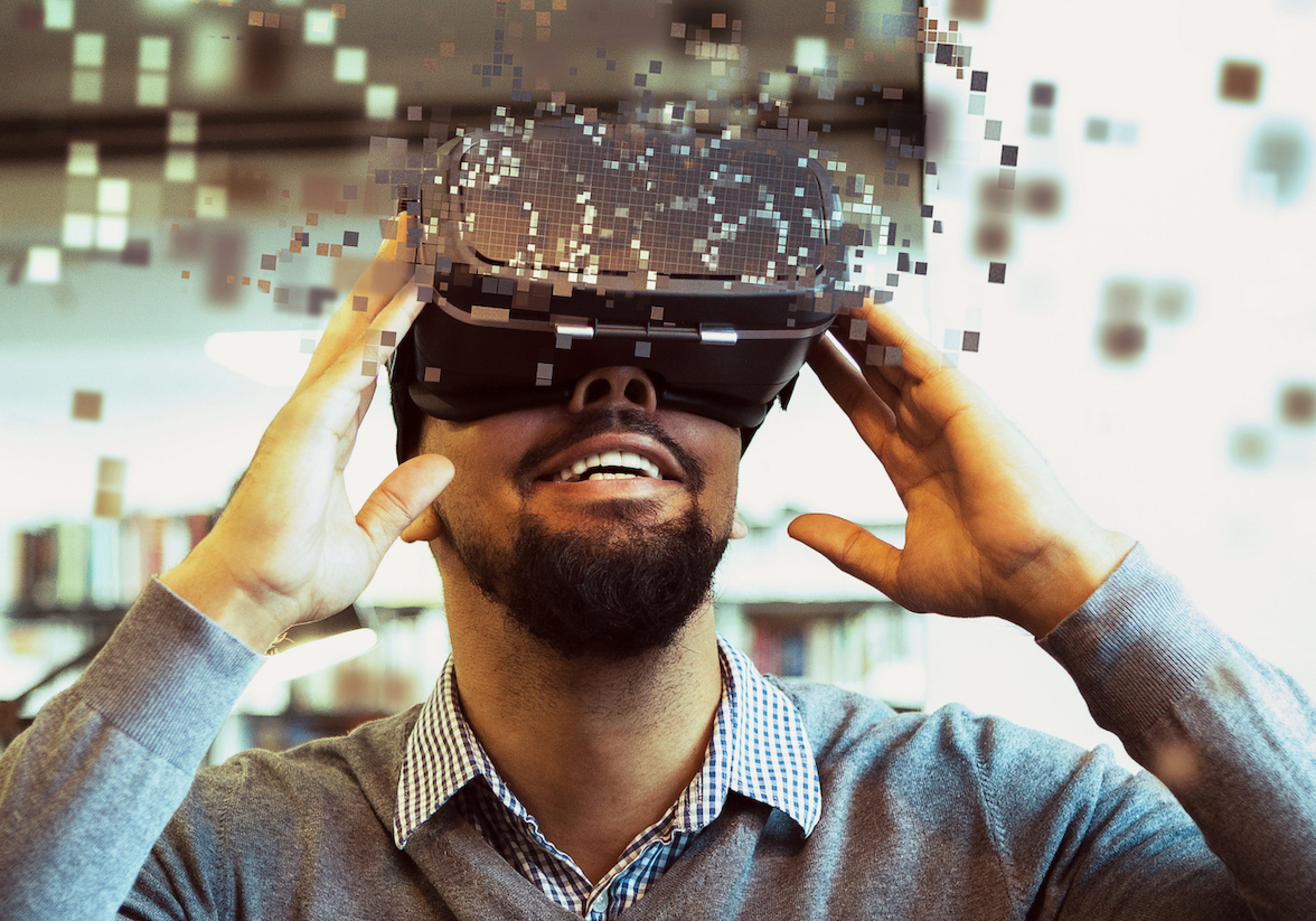Since the third industrial revolution kicked off in earnest in the late 1900s, the world has seen a dizzying array of new technologies become part of our lives: from harnessing nuclear power to the invention of the ethernet and the creation of wireless devices, web pages, social media platforms, mobile phones, money services like Kenya’s M-Pesa and the Internet of Things. And things are not slowing down.
In the current fourth industrial revolution, technologies like virtual reality (VR) and artificial intelligence (AI) are disrupting how we learn, develop, connect and even empathise.
Dubbed the ‘empathy machine’ of the tech world, VR has been shown to encourage empathetic behaviour by encapsulating the qualities of presence and embodiment. Project SHELL, an immersive 15-minute VR simulation designed to garner support for the conservation of the loggerhead turtle was designed by a professor from the University of Oregon in the US and is a case in point.
In the simulation, students wearing Meta Quest 2 VR headsets immerse themselves in the real world of the loggerhead turtle. They effectively become the turtles – arms morph into flippers and backs curve into shells as they embark on a journey from hatchlings to adults, experiencing the hazards confronted by real turtles in their natural habitat.
Daniel Pimentel from the University of Oregon, one of the study’s co-authors, said the students’ feelings didn’t fade once the headsets came off. “From a sensory perspective, the dangers [they] faced while embodying the turtle threatened [them],” he said.
The potential to accelerate learning through VR
In the world of learning, the possibilities presented by these kinds of experiences are deeply exciting. Already, it is becoming clear that new approaches must be harnessed to develop relevant, empathetic and socially minded leaders who are equipped to understand and tackle the complex environmental, social and governance (ESG) issues of our time.
It’s hardly surprising, therefore, that forward-thinking business schools are already starting to embrace VR tools to bring practical insights alive and deliver content more innovatively as they vie to attract students.
The massive potential of these approaches have long been recognised. In 2021, professional services firm PwC released findings that highlighted the value of using VR tools to support soft skills training, and as a way of helping businesses to upskill employees faster and more cost-effectively. The study showed that using VR enabled learners to absorb information four times faster than they could in the classroom alone and with four times the focus compared to their e-learning peers. Perhaps more impressive is that VR learners were 275% more confident when applying newly acquired skills than they were before the learning intervention and 3.75 times more “emotionally connected to content than classroom learners”.
While some business schools, notably in the US and Europe, had already started exploring VR teaching methods before 2020, the Covid-19 pandemic has undoubtedly accelerated investment into online and “virtual” learning. However, it is also becoming very clear that, as Dot Powell, Warwick Business School’s director of teaching and learning enhancement, said in a recent interview with the Financial Times, learning approaches that simply require lecturers to talk over a slide presentation “won’t be acceptable for much longer”. The appetite for authentic engagement with fellow students and course content continues to grow among students of higher education institutions. They want interactive and personalised learning and they want it now. VR gives us the power to give it to them.
Increasing access to education is also key
There is another reason that VR has significant potential, especially for poorer institutions in more remote parts of the world – it could help us to expand access to quality learning experiences.
At Henley Business School Africa (Henley Africa) we started experimenting with VR in 2019 as a solution to the limitations facing students from different countries in Africa when it comes to attending international leadership immersion programmes. There is ample evidence that face-to-face immersions are inherently valuable to students, but the high cost of participation including flights, time constraints (limited close-up encounters between participants) and restricted student numbers (only 20-30 students per immersion) could not be ignored. It is a luxury few can afford.
Of course, a significant stumbling block in a country with high levels of inequality, like South Africa, is the cost of the technology itself, which makes it impractical for all students to purchase their own devices. In confirmation of its support for the initiative, Henley Africa has committed to investing in the technology and making headsets available for individual use as required.
Where to from here?
As the body of research into VR as a learning tool grows and more practical business school case studies emerge, the value of incorporating innovative digital platforms and technologies into the business school facilitation mix will become increasingly evident.
As our experience at Henley Africa shows, a successful shift towards VR cannot be achieved without support across the business school. This is an evolving journey and as more schools share their VR experiences and increasing number of concrete models are bound to emerge.
VR – and the future technologies that will, no doubt, grow from this base – have the potential to revolutionise the business school learning model so that it is more experiential, innovative and personalised. Above all, it is my hope that they will radically increase access to priceless learning experiences that will help to build authentic and empathetic African leaders who are empowered to create transformative businesses across the continent.








